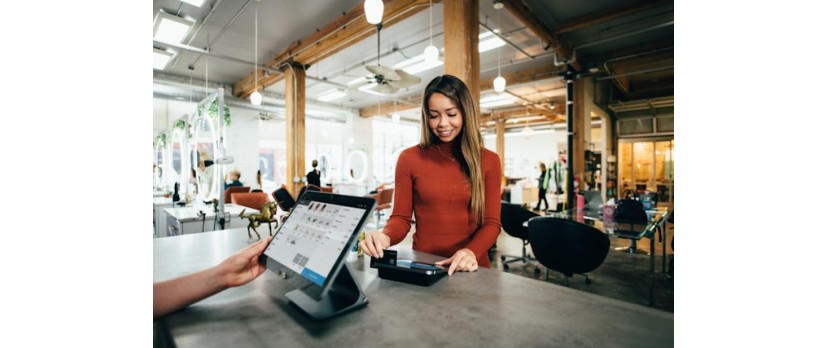In the fast-paced world of retail, standing out from the competition is vital for success. With more businesses moving online, search engine optimization (SEO) has become a crucial tool for improving visibility, attracting customers, and boosting sales. This detailed guide will provide retailers with insights into retail SEO, explaining its importance, key strategies, and expert tips for improving SEO on retail websites.
What is Retail SEO?
Retail SEO, or SEO for retailers, refers to the strategies, techniques, and practices used to optimize a retail website so that it ranks higher on search engines like Google, Bing, and Yahoo. The goal is to increase organic (non-paid) traffic to the site and improve visibility for specific retail industry keywords. This involves optimizing both on-page elements, such as product pages and content, as well as off-page elements, like backlinks and social signals.
Partnering with an SEO agency Dubai, can be beneficial for small businesses, as it can shake their revenue to the max. For online stores, SEO is a way to ensure that potential customers can easily find your products and services through search engine results. SEO for retail websites focuses on targeting both generic and niche retail SEO keywords and optimizing elements such as:
Product Descriptions
Title Tags and Meta Descriptions
URL Structure
Images and Alt Text
Site Speed and User Experience
Mobile Optimization
Common SEO Terms to Know
To get started with retail SEO, it's essential to understand some key SEO terms that will come up frequently, especially when exploring small business SEO services. Here’s a more comprehensive glossary of important concepts:
Keywords: Words or phrases that customers search for when looking for products. For retailers, this can range from broad terms like "clothing" to more specific searches like "women's leather jackets in Dubai."
On-Page SEO: The practices you use within your website to optimize content, including keyword usage, meta tags, internal links, and ensuring your content is valuable for both users and search engines.
Off-Page SEO: Techniques that occur outside of your website, such as backlinks, social media mentions, influencer partnerships, and content marketing efforts to increase your site's credibility.
Local SEO: A specialized branch of SEO that focuses on optimizing a website for local searches. This is especially crucial for retailers with physical stores or those operating in specific regions like Dubai. It involves optimizing your Google My Business listing, local keywords, and getting featured on local directories.
Search Engine Ranking: The position of your website on the search engine results pages (SERPs). The higher you rank, the more visibility you gain.
SERPs (Search Engine Results Pages): The pages that search engines display in response to a user’s query. The results are typically ranked based on relevance, quality, and authority.
Organic Traffic: Visitors who come to your website as a result of unpaid search results. Organic traffic is crucial for online retail businesses as it is both sustainable and cost-effective in the long run.
CTR (Click-Through Rate): The percentage of people who click on a search result after seeing it in the SERPs. A higher CTR can signal to search engines that your content is relevant and valuable.
Bounce Rate: The percentage of visitors who leave your website after viewing only one page. A high bounce rate can negatively impact your SEO, signaling poor user experience or irrelevant content.
Backlinks: Links from other websites to your site. Backlinks are one of the most significant ranking factors for search engines because they serve as endorsements of your website’s credibility and relevance.
Schema Markup: Code added to your website to help search engines better understand the content of your pages. This can lead to rich snippets, which enhance your listing in the SERPs by displaying additional information like reviews, prices, and availability.
Alt Text: Descriptive text used for images that helps search engines understand what the image is about. It also improves website accessibility for visually impaired users.
Anchor Text: The clickable text in a hyperlink. Optimizing anchor text helps search engines understand the context of the linked page and improves internal and external link strategies.
Mobile-First Indexing: Google’s approach to indexing and ranking websites based primarily on their mobile versions. Ensuring that your site is mobile-friendly is now essential for high rankings.
Conversion Rate Optimization (CRO): The practice of improving the conversion rate of your website. This involves testing and refining elements like call-to-action buttons, product pages, and checkout processes to increase sales.
Site Speed: The loading time of your website. Google uses site speed as a ranking factor, and a slow-loading website can negatively affect both user experience and SEO.
Long-Tail Keywords: Longer and more specific keyword phrases that are easier to rank for but can bring in highly targeted traffic. For example, "buy women’s running shoes in Dubai" is a long-tail keyword.
SEO Audit: A comprehensive analysis of your website’s SEO performance. An SEO audit identifies areas for improvement, such as broken links, slow load times, or missing meta tags.
Keyword Cannibalization: When multiple pages on your website target the same keyword, causing confusion for search engines and potentially harming your rankings. Proper keyword strategy can help avoid this.
Why Use SEO for Retail Stores?
As more consumers turn to the internet for their shopping needs, SEO for retail businesses is a critical component of online marketing. Here are some key reasons why retail SEO should be an essential part of your marketing strategy:
1. Increased Visibility
SEO helps your retail store appear higher in search engine rankings. When customers search for a product you offer, appearing on the first page of search results means you're more likely to get noticed. SEO for online shops is crucial for competing with larger brands and ensuring your products are discoverable.
2. Better User Experience
Search engines like Google prioritize websites that provide a good user experience. By focusing on site speed, mobile optimization, and easy navigation, you improve your store’s SEO and increase the likelihood of visitors staying longer and making a purchase.
3. Increased Traffic and Sales
When your store ranks well for retail SEO keywords, you'll attract more traffic. And with proper conversion optimization, this traffic can be turned into customers. SEO for retail websites is often more cost-effective than paid advertising.
4. Brand Trust and Credibility
Consumers are more likely to trust and purchase from brands that appear at the top of search results. SEO for online retailers helps build trust by increasing the credibility of your store and product offerings.
6 Expert Tips to Improve SEO for Retail Businesses
Now that we understand why SEO is important for retail businesses, let’s explore some expert tips on how to improve SEO for your retail site:
1. Optimize Product Pages with Detailed Descriptions
Product page optimization is key to retail SEO. Detailed, keyword-rich descriptions help search engines understand the content of your page, and they provide customers with the information they need to make a purchase. Consider using an article summarizing tool to create concise product descriptions. that include relevant keywords and essential information. Ensure each product page contains unique content avoid using manufacturer descriptions, which can hurt your rankings.
Use a variety of retail industry keywords that align with your products. For example, if you run a boutique in Dubai, target SEO for online boutique keywords like "best Dubai boutique clothes" or "luxury Dubai fashion boutique."
2. Leverage Local SEO
If you're a retail store in Dubai or have a physical store, local SEO is essential. Optimize your website for location-specific searches like “retail stores in Dubai” or “Dubai online retailers.” Add your business to Google My Business and make sure your name, address, and phone number (NAP) are consistent across all directories.
Creating location-based landing pages (e.g., "best shoes in Dubai") and listing local products can also help you rank higher for local search terms.
3. Focus on Mobile Optimization
With the increase in mobile shopping, having a mobile-friendly site is essential. Google uses mobile-first indexing, meaning it prioritizes the mobile version of your website for ranking. Make sure your site loads quickly on mobile devices, images are optimized, and navigation is easy.
4. Use Schema Markup for Products
Schema markup helps search engines understand the content of your pages better and can lead to enhanced search results like rich snippets. For retail SEO, schema markup for product pages can display product details, prices, and reviews directly in search results, increasing click-through rates.
5. Build High-Quality Backlinks
Backlinks are a critical part of off-page SEO. Focus on building quality backlinks from reputable sources, such as industry publications, influencers, or other retailers. These links signal to search engines that your website is trustworthy and authoritative.
6. Optimize for Voice Search
As more consumers use voice assistants like Siri, Alexa, and Google Assistant, optimizing your content for voice search is crucial. People tend to use longer, more conversational phrases when using voice search. For example, instead of “buy shoes Dubai,” they might ask, “What’s the best place to buy shoes in Dubai?” Optimize your content to answer these types of questions.
How to Find Managed SEO for Retail Sites
Finding the right SEO agency for retail sites can make a significant difference in your business’s online visibility. Look for an SEO retail agency with experience in your industry and a proven track record of delivering results. Here are a few tips for finding managed SEO services:
Look for Specialization: Choose an SEO retail company that understands the specific challenges of your business, whether you’re an e-commerce store, physical retailer, or a hybrid of both.
Check Case Studies and Reviews: Look for agencies that have worked with retailers similar to your business. Request case studies or references to see the results they’ve achieved.
Discuss SEO Strategy: A good SEO agency will work with you to develop a tailored retail SEO strategy. They should be clear about how they’ll improve your rankings, drive traffic, and increase conversions.
Average Cost of SEO for Retailers
The cost of SEO for retail websites can vary depending on factors like the size of your website, the competitiveness of your industry, and the services provided. On average, SEO services for retail stores can range from $500 to $5,000 per month, depending on the scope of the project.
Smaller retailers may opt for less expensive packages, while larger businesses may require more advanced services. For SEO for online retailers and SEO for online shops, consider working with an agency that offers a mix of content, technical optimization, and strategic consultation to ensure long-term growth.
Conclusion
Investing in retail SEO is essential for improving your online presence, driving traffic, and ultimately boosting sales. By implementing best practices, focusing on local SEO, and working with the right SEO agency for retail, like Digital Gravity, retailers can achieve higher rankings, better customer engagement, and increased conversions.
Whether you're an online boutique in Dubai or a larger retail store offering a variety of products, optimizing your site for search engines will help you stand out in a competitive marketplace. By following the expert tips provided in this guide and staying updated with the latest SEO trends, your retail business can succeed in the digital age.



Login and write down your comment.
Login my OpenCart Account